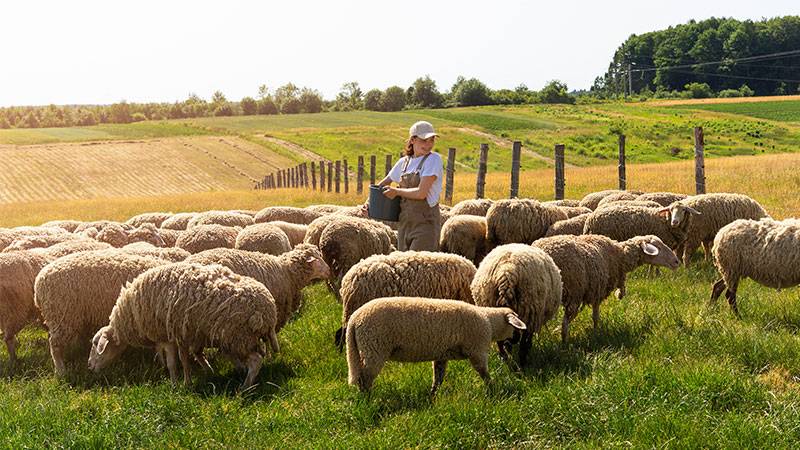Every day at Linnaea Farm, Tamara McPhail’s routine of milking cows offers a glimpse into a timeless connection with nature and the essence of sustainable agriculture. Linnaea Farm, a 314-acre organic cooperative located on Cortes Island, is at the forefront of regenerative farming practices.
Having devoted nearly a quarter of a century to the farm, McPhail and her partner Adam Schick represent a lineage of guardianship over this land. “There’s just something about sitting in a cold barn with your head up against the warm belly of a cow and milking early in the morning,” reflects McPhail.
The renewed interest in regenerative farming among major agri-food corporations isn’t novel. Cultivators have practiced these techniques for generations, emphasizing the revitalization and sustenance of the ecosystem. The linchpin of Linnaea’s approach, as described by McPhail, is viewing soil, water, plants, animals, and humans as interconnected facets of one system.
Central to this closed-loop ecosystem are Linnaea’s cows. Their manure undergoes a composting process, and after maturing for three years, it rejuvenates the farm’s crops. This process also provides an economic advantage, as McPhail mentions the farm’s capacity to sell excess manure, helping offset cow maintenance costs.
Despite the rooted traditions, climate change is introducing new challenges. Cortes Island, typically characterized by its heavy rainfall, is undergoing meteorological shifts. Diverse patterns of prolonged dry spells and intense rain have emerged, complicating farming processes. A previous season’s excessive rain resulted in flooding and crop loss. “We had potatoes rot in the ground, which has never really occurred before,” McPhail shared.
The focus of regenerative farming isn’t to take from the land but to replenish or improve the ecosystem, where soil, water, plants, humans and animals are interconnected, said McPhail, Linnaea’s executive director and one of the resident stewards, along with Schick, who’s in charge of the market garden.
Yet, these adversities have catalyzed innovations on the farm. Through rotational grazing, McPhail ensures shorter periods of livestock grazing in smaller paddocks, benefiting the soil, combating erosion, and promoting biodiversity. This approach, combined with practices in the market garden such as shallow tilling and crop rotation, have shown to be effective even in extreme climatic events.
An additional layer of resilience comes from the expansion of Linnaea’s seed library. According to the Times Colonist, the farm focuses on seeds from plants that have evolved to thrive in local conditions, ensuring crops that can weather future climate shifts.
Linnaea Farm’s environmental stewardship extends beyond its crops. A notable project in collaboration with conservation groups led to the restoration of a wetland within the farm’s boundaries. Aimed at moderating water flow during heavy rainfalls, the Dillon Creek restoration project also targets the enhancement of water quality in surrounding lakes. Following its completion, Miranda Cross, a wetland restoration specialist, emphasized the immediate benefits, particularly in controlling sediment flow and providing habitats for diverse wildlife.
The vital role of wetlands, especially in mitigating climate impacts, aligns seamlessly with Linnaea’s agricultural and ecological principles. As McPhail points out, while the nuances of their practices evolve in response to climate challenges, their foundational philosophy remains unchanged. “We’ve always tried to do things in a way that leaves the land better for the next generation,” McPhail stated.
More inspiring green news similar to this:


